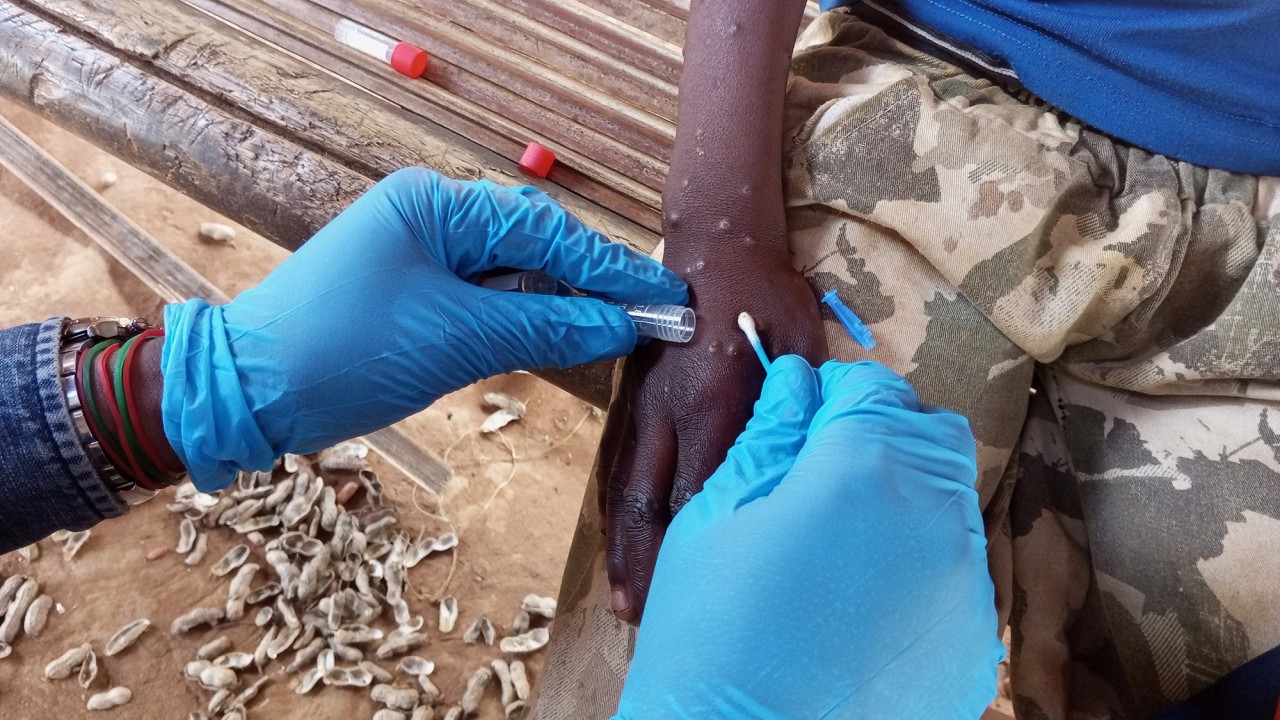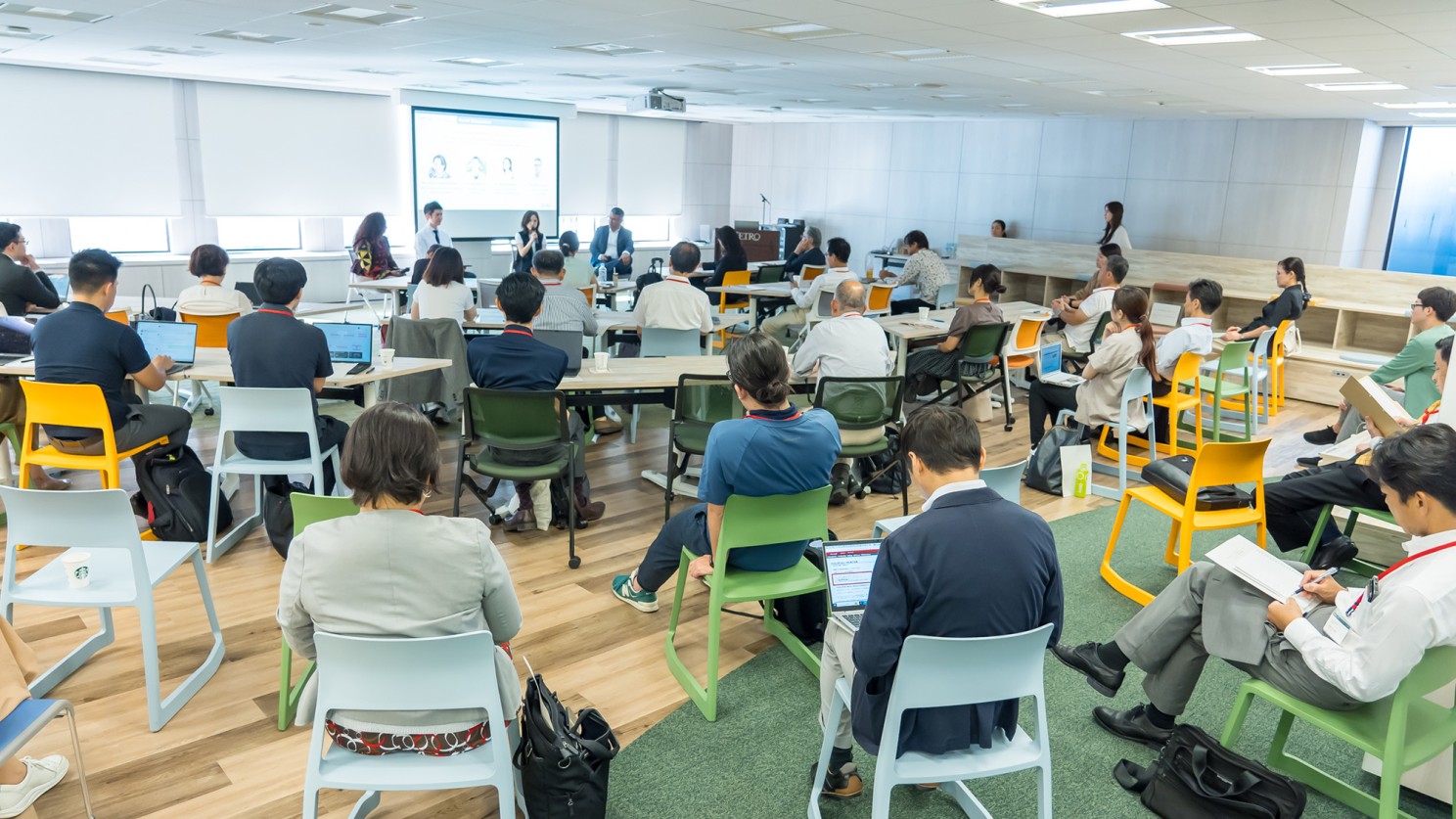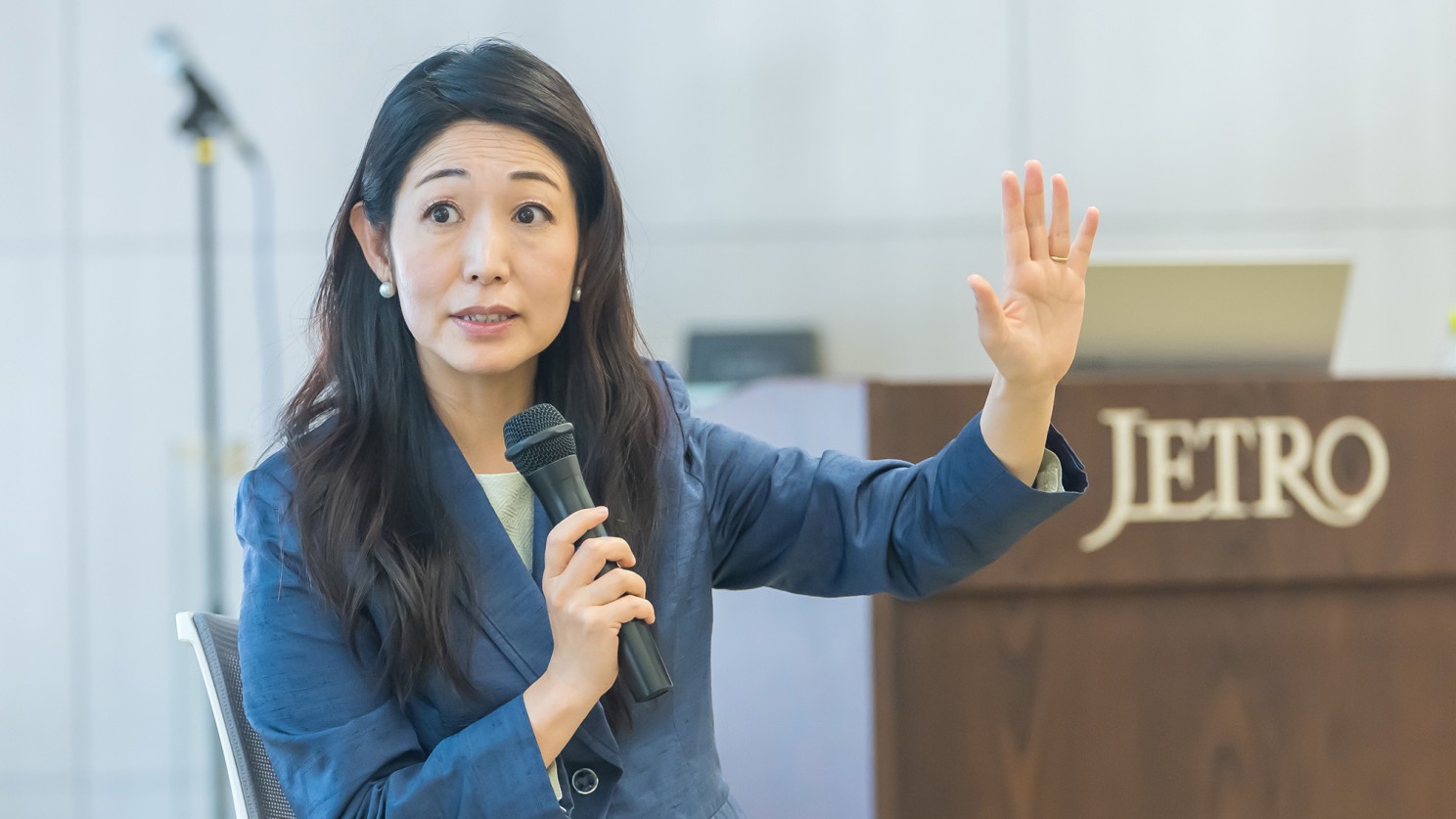Mpox is a Wake-Up Call for Greater Health Investment

A healthcare workers takes a sample from an mpox patient. Credit: WHO / Katson Maliro
By Anil Soni, CEO, WHO Foundation.
The latest mpox outbreak is an urgent example of the already pressing need for more and improved health technology in low- and middle-income countries, to accelerate diagnosis, improve surveillance, and enable treatment for a wide range of illnesses.
So, I’m truly inspired by people whose desire to innovate is rooted in the commitment to make healthcare more accessible. Earlier this month, I was in Tokyo where I met incredible people (aided by the wonderful JETRO – Japan External Trade Organization) working on innovative healthcare technologies as well as those pushing for more private investment in health. The visit also served to remind me that health inequities are everywhere, in high income countries as well as in low- and middle-income countries.

Seminar on impact investing in health. Credit: Kei KATAGIRI / WHO Foundation
Sho Okiyama, a physician and health tech entrepreneur, powerfully illustrated this during our seminar on impact investing in health. Despite Japan being one of the world’s wealthiest countries, healthcare access remains unequal. Mr Okiyama told our audience about his early career as a physician in an island of around 100 residents in Okinawa Prefecture.
There was no medical equipment. I had my own body, I had a stethoscope. There is a strong discrepancy between the levels of medical care that can be given, even here in Japan.
His experience there and in emergency healthcare laid the groundwork for his later pivot to establishing the startup firm Aillis, Inc. in 2017. His company develops AI-guided diagnostic tools that use high-resolution photography of the throat to diagnose a range of conditions including influenza.
Aillis is just one example of an innovative startup developing technology with the potential to improve healthcare in countries where services are unavailable and where health workers are few and far between. We were lucky enough to speak with Rami Suzuki, also a trained physician, who is the managing director of a private equity firm and the leader of the start-up tech firm ARC Therapies. Like many people, her drive to innovate and widen treatment options for cancer stemmed from a personal experience of cancer within her family.

Rami Suzuki speaks at the seminar. Credit: Kei KATAGIRI / WHO Foundation
Another inspiring example from our time in Tokyo is the Japan Healthcare Innovation Hub, led by Anna Nakayasu, MD/MBA, a doctor who is now part of the investment team at Globis Capital Partners. Her innovation hub brings together 1,600 innovators from Japan who want to contribute to science and healthcare.
The government of Japan is already a generous donor to global health, and also recognizes that private investment is an effective way to improve healthcare in low- and middle-income countries. They established the Triple I initiative to give investors and innovators knowledge, networks and confidence to increase the amount of impact investment aligned with healthcare access and the achievement of the Global Goals. I was proud to commit the WHO Foundation as a partner in this initiative alongside our Chief Impact Investment Officer, Geetha Tharmaratnam.

Pictured FLTR: Mr. Itsik Francis, Ms. Ai Tanaka, Mr. Anil Soni, Mr. Hideo Suzuki, Ms. Geetha Tharmaratnam, Ms. Yoshiko Okamoto, and Mr. Satoshi Miura. Credit: WHO Foundation
Our impact investment team was in Japan with our partner, OurCrowd, a venture capital company that shares the belief that investors can both do well and do good. Together, we created the Global Health Equity Fund to invest in promising health tech startups, tying investment from the fund to business strategies that include low- and middle-income countries, both to accelerate product development and to ensure wider access.
We know that today’s health needs cannot be met by public sector funding and development assistance alone. With impact investment in health now reaching US$200 billion, five times the size of annual development assistance for health, the potential to drive meaningful change is immense. The collaboration between private investors and innovators, as demonstrated through initiatives like Japan’s Triple I and the Global Health Equity Fund, underscores a powerful opportunity to advance health equity on a global scale.
The inspiring examples from my visit to Japan, where dedicated individuals are bridging healthcare gaps, serve as a reminder that solutions to pressing health challenges, including the mpox outbreak, are within our grasp. As we move forward, the question remains:
How can we further leverage impact investment in health to ensure that every person, regardless of where they live, has access to the healthcare they need?
I’m looking forward to hearing your thoughts.
This article was first published by Anil Soni on LinkedIn on August 23, 2024.

